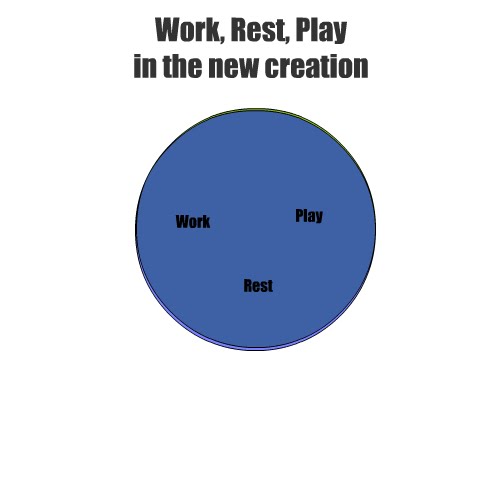Here is part three of my essay on the wisdom literature. Here’s part one, and part two.
An International Affair
The reference to Solomon’s wisdom “surpassing that of Egypt and the wisdom of all the men of the east “(1 Kings 4:30) invites us to compare Israel’s wisdom with the nations,[1] and it is therefore feasible to expect similar interactions between wisdom literature linked to Solomon and the wisdom literature of the ANE.
Parallels have been established between the wisdom of Israel and the wisdom of Babylon, Egypt,[2] and Sumer,[3] Canaan, [4] and the Akkadian empire.[5]
What about the language barrier?
Rumours of a language barrier seem greatly exaggerated. This oft-cited objection to comparisons, on the basis of language,[6] appears to have been turned over by the discovery of a multi-lingual library of wisdom literature at Ugarit.[7] This discovery of documents from geographically disparate locations in a city close to Israel, written in Akkadian, Sumerian, Hittite and Egyptian languages suggests this barrier may be an overstated obstacle and that ANE scribes were internationally conversant.[8]
In any case the biblical picture of Israel’s struggle with foreign idols, and interactions with neighbours, does not suggest this barrier posed significant communication problems.[9] Israel was clearly conversant in foreign theology, and only a brave “argument from silence” could suggest that this was not a two-way conversation.[10]
The writers of biblical texts are well known to have used forms and genres common elsewhere in the ANE.[11] Even the Solomonic historiography (1 Kings 3-11), which firmly establishes wisdom as a defining theme of Solomon’s reign,[12] is consistent with ANE royal propaganda.[13]
Same, Same, but Different
The Book of Proverbs shares much in common, even some content, with the Egyptian Instruction of Amenemope,[14] other similarities between the structure and rhetorical devices[15] of Proverbs and other works from the ANE have been noted,[16] Ecclesiastes also embraces common ANE wisdom structures.[17]
Ruffle (1977) suggests an Egyptian scribe working in Solomon’s court may have reproduced the Amenemope passages citing “plenty of evidence” for cultural contact between nations,[18] and argues this view is consistent both with the context and biblical account.[19]
It may be possible to demonstrate that wisdom borrowing was a two-way street, if Proverbs existed in some form around the time of Solomon then it is possible that the Aramaic Wisdom of Ahiqar, dated between the 7th and 5th centuries BC,[20] may have borrowed from Proverbs.[21]
Several Mesopotamian documents have been strongly linked to Job.[22] The Baal sagas from the temple library of Ugarit shed further light on ANE theology corrected in Job, where Yahweh is presented as being in control of the chaos of creation.[23]
Hurowitz (2006), in a survey of the theological content of a Babylonian wisdom piece The Wisdom of Supe-Ameli concluded that the critique of wisdom contained in Ecclesiastes “criticises accepted and widely held didactic wisdom” from the ANE.[24] Similar connections have been made between Ecclesiastes and the Gilgamesh Epic,[25] a specific example of dependency comes in the form of the cord of three strands motif employed in Ecclesiastes (Ecc 4:9-12) and Gilgamesh (lines 106-110) “Two men will not die; the towed rope will not sink, a towrope of three strands cannot be cut. You help me and I will help you, (and) what of ours can anyone carry off?”[26] Other similarities have been noted with the Babylonian The Dialogue of Pessimism,[27] and several of the texts also compared to Job, and Egyptian texts The Songs of the Harper, The Dispute of a Man with His Ba, and the Instruction of Ptah-hotep.[28]
Such comparisons often fall into the same trap experienced by the proverbial pair of hunters who encounter a fresh pile of manure in the woods.[29] Some deny any grounds for comparison,[30] others note significant similarities but see divergent theological views as evidence of little or no influence,[31] and minimalists raise questions about the nature of revelation,[32] and see an opportunity for source criticism.[33] All agree that Hebrew wisdom deliberately creates a monotheistic distinction from conventional ANE thought.[34] This deliberate distinction, not the similarities, should provide the most fruit for understanding the relationship between similar works.[35]
Wright suggests Israel’s wisdom thinkers and writers took part in an international dialogue “with an openness to discern the wisdom of God in cultures other than their own,”[36] and that such comparisons lead to the conclusion that there was “a lot of contact between Israel’s wisdom thinkers and writers and those of surrounding nations.”[37]
[1] Longman III, T,
How To Read Proverbs, (Downers Grove: IVP Academic, 2002)p 62 agrees.
[2] Whybray, N, ‘The Social World of the Wisdom Writers,’ p 242 suggests Israelite wisdom literature constantly received influence from Egypt, and elsewhere in the ANE, and suggests Israel was never totally isolated from the mainstream of ANE culture.
[3] Zimmerli, Walther, ‘Expressions of Hope in Proverbs and The Book of Job,’ Man and His Hope in the Old Testament, Studies in Biblical Theology, SCM Press, London, 1971, p 13, “We know too that it [Old Testament wisdom] stands in international relationship to equivalents in Egypt as well as in Babylonia, and before that in ancient Sumer.” for more on comparisons with Egyptian wisdom see Beaulieu, P-A, ‘The Social and Intellectual Setting of Babylonian Wisdom Literature,’ p 8,
[4] Ruffle, ‘The Teaching of Amenemope and Its Connection With the Book of Proverbs,’ Tyndale Bulletin 28, (1977), p 35, citing Albright, W. F. Wisdom in Israel and in the Ancient Near East, Leiden (V. T. Stipp. 3) (1960), pp 1-15.
[5] See, for example, Beaulieu, P-A, ‘The Social and Intellectual Setting of Babylonian Wisdom Literature,’ pp 3-19, Bruce, F.F, “The Wisdom Literature of the Bible: Introduction,” The Bible Student ns 22.1 (Jan. 1951), p 7, on the comparison with Babylonian wisdom see Hurowitz, V.A, ‘The Wisdom of Supe-Ameli,’ Wisdom Literature in Mesopotamia and Israel, ed Clifford, R.J, Society of Biblical Literature Symposium Series No 36, SBL: Atlanta, 2006, pp 44-45, Ruffle, op. cit, 36
[6] Shields, M.A, The End of Wisdom, p 40, suggests the Hebrew literature uses a vocabulary unparalleled in similar texts in Egypt and Mesopotamia, but he cedes that the parallels between the literature suggests some common ground.
[7] Fyall, R.S, ‘Job and the Canaanite myth,’ Now My Eyes Have Seen You: Images of Creation and Evil in the Book of Job, New Studies in Biblical Theology 12, (Downers Grove: IVP), pp 191-194
[8] Clifford, R.J, The Wisdom Literature, p 38
[9] Certainly not when it came to Israel adopting the gods, or women, of neighbouring nations.
[10] Rahab’s testimony would be one notable example of a foreigner coming to Yahweh having heard stories of his greatness.
[11] Clifford, R.J, The Wisdom Literature, p 24
[12] The vast majority of occurances of הכם in the so called Deuteronomic History occur in this passage – see Lemaire, A, ‘Wisdom in Solomonic Historiography,’ Wisdom in Ancient Israel, ed Day, J, Gordon, R.P & Williamson, H.G.M, (Cambridge, Cambridge University Press), 1995, p 107
[13] Lemaire, A, ‘Wisdom in Solomonic Historiography,’ p 113, Crenshaw, J.L, Old Testament Wisdom: An Introduction, (Louisville: Westminster John Knox Press, 1981), 2010 Edition, pp 44-46
[14]Especially chapters 22:17-24:22 which fall within a “Solomonic” section, Early academic discussion surrounding the issue is summarised at length in Ruffle, J, ‘The Teaching of Amenemope and Its Connection With the Book of Proverbs,’ Tyndale Bulletin 28, (1977), pp 29-68, Crenshaw, J.L, Old Testament Wisdom: An Introduction, pp 252-260
[15] The two rhetorical devices in the introduction (Proverbs 1-9) a father instructing his son, and the personification of wisdom and folly, were common ANE frameworks for wisdom instruction, see Day, J, ‘Foreign Semitic Influence on the wisdom of Israel and its appropriation in the book of Proverbs, On the personification of wisdom as a Semitic, and Egyptian, tradition see pp 60-69, and on the instruction from a father to son see the treatment of the Wisdom of Ahiqar, pp 65-66, on both see Sinnott, A, The Personification of Wisdom,(Ashgate Publishing: Aldershot, 2005), pp 44-45, Longman III, T, How To Read Proverbs, p 70-77
[16] Ruffle, op. cit, 36
[17] Crenshaw, J.L, Ecclesiastes: A Commentary, (Philadelphia: Westminster Press, 1987), pp 28-31
[18] Though he ultimately plays down the significance of similarities between Proverbs and Amenemope, Ruffle, J, ‘The Teaching of Amenemope and Its Connection With the Book of Proverbs,’ Tyndale Bulletin 28, (1977), pp 65-66, the idea of Egyptian sages being employed in Israel’s court also surfaces in Hubbard, ‘The Wisdom Movement,’ p 6
[19] Ruffle, op. cit, p 66, his evidence includes specific mentions of foreigners holding senior positions at the Israelite court, and the suggestion that some of Solomon’s officials have Egyptian names
[20] Millard, A, ‘In Praise of Ancient Scribes,’ Bible And Spade, 2 (Spring-Summer-Autumn 1982) pp 33-46 p 40
[21] Day, J, ‘Foreign Semitic influence on the wisdom of Israel and its appropriation in the book of Proverbs,’ Wisdom in Ancient Israel, ed Day, J, Gordon, R.P, & Williamson, H.G.M, (Cambridge: Cambridge University Press, 1995), pp 55-71 – Day establishes a comparison, and the presence of a direct quote in Proverbs 23:13-14, but suggests Ahiqar has priority, arguing for a later than 1000BC composition of that passage in Proverbs, Steinmann, A.E, ‘Proverbs 1-9 as A Solomonic Composition,’ Journal of the Evangelical Theological Society, 43/4 December 2000, pp 659-674 at p 666 suggests a dating around that time is feasible, however, Whybray, N, ‘Thoughts on the Composition of Proverbs 10-29,’ p 71 suggests Ahiqar was an Assyrian document contemporary with the Israelite monarchy.
[22] Clifford, The Wisdom Literature, pp 70-72 identifies three Mesopotamian comparisons – the “Sumerian Job” A Man and His God, “I will Praise the Lord of Wisdom” or Ludlul bel nemeqi, and The Babylonian Theodicy – which Clifford argues directly influenced Job, Andersen, F.I, Job: An Introduction and Commentary, (Leicester: IVP, 1974) pp 24-27, identifies a Ugaritic story called Keret, and an older Sumerian poem, as grounds for comparison, Blenkinsopp, J, Wisdom and Law in the Old Testament: The Ordering of Life in Israel and Early Judaism, (Oxford: Oxford University Press, 1995), p 69, mentions those works and the Dialogue of Pessimism as possible comparisons, Kidner, D, The Wisdom of Proverbs, Job & Ecclesiastes, (Leicester: IVP-Academic, 1985), pp 125-141 also mentions the aforementioned documents. Von Rad, G, ‘Job 38 and Egyptian Wisdom,’ The Problem of the Hexateuch and Other Essays, (London: Oliver and Boyd, 1965), pp 281-291 suggests a comparison between Job and the Onomasticon of Amenemope, and the Papyrus Anastasi I, suggesting structural similarities between the two, Perdue, L.G, Wisdom Literature: A Theological History, (Louisville: Westminster John Knox, 2007), pp 85-89
[23] Fyall, R.S, ‘Job and the Canaanite myth,’ Now My Eyes Have Seen You: Images of Creation and Evil in the Book of Job, New Studies in Biblical Theology 12, (Downers Grove: IVP), pp 191-194
[24] Hurowitz, V.A, ‘The Wisdom of Supe-Ameli,’ Wisdom Literature in Mesopotamia and Israel, ed Clifford, R.J, Society of Biblical Literature Symposium Series No 36, SBL: Atlanta, 2006, p 45
[25] Bruce, op. cit, p 8, Kaiser, W, Ecclesiastes: Total Life, (Chicago: Moody Press, 1979) pp 38-41 discusses ANE parallels to Ecclesiastes
[26] For a more detailed comparison see Day, ‘Foreign Semetic influence,’ pp 59-62
[27] Greenstein, E.L, ‘Sages With a Sense of Humor: The Babylonian Dialogue Between a Master and His Servant and the Book of Qohelet,’ Wisdom Literature in Mesopotamia and Israel, ed Clifford, R.J, Society of Biblical Literature Symposium Series No 36, (Atlanta, SBL, 2006), originally published in Beth Mikra, 44 (1999), pp 97-106
[28] Shields, M.A, The End of Wisdom: A reappraisal of the historical and canonical function of Ecclesiastes, (Eisenbrauns, 2006), pp 29-31 draws comparisons with the Babylonian Theology, Ludlul bel nemeqi, and the Instructions of Ahiqar, also Kidner, D, The Wisdom of Proverbs, Job & Ecclesiastes, (Leicester: IVP-Academic, 1985), pp 138-139, also Crenshaw, J.L, Ecclesiastes: A Commentary, (Philadelphia: Westminster Press, 1987), pp 51-52
[29] One says to the other, “what’s that?” the other answers “it looks like deer droppings,” and leans down to smell it,“it smells like deer droppings,” the other tastes it “it tastes like deer droppings!” “Oh,” they both say, “it’s a good thing we didn’t step in it.”
[30] Andersen, F.I, Job: An Introduction and Commentary, (Leicester, IVP, 1974), p 24 identifies, two extremes to avoid when examining comparisons between Job and ANE literature. The first is to contend enthusiastically for the uniqueness of revelation, the second is to suggest that Israel invented nothing themselves.
[31] Shields, M.A, The End of Wisdom: A reappraisal of the historical and canonical function of Ecclesiastes, (Eisenbrauns, 2006), p 33, after a lengthy list of comparable documents Shields concludes that the similarities are vague enough to rule out dependency, though they place the books in an ANE context. Whybray, N, ‘The Social World of the Wisdom Writers,’ p 246 quotes McKane (1970) suggesting the theological correctives (specifically mentions of Yahweh) in Proverbs 10-29 are embellishments of “old wisdom” that was secular in nature, Ruffle, op. cit, pp 63-66 suggests that the pursuit of wisdom was so common that such similarities were inevitable.
[32] Enns, P, Inspiration and Incarnation: Evangelicals and the problem of the Old Testament, (Grand Rapids: Baker Academic, 2005), p 39 – while not advocating the position, Enns suggests that foreign influence on scripture raises questions about the nature of revelation.
[33] A question articulated by Ogden, G.S, Qoheleth, (Sheffield:Sheffield Phoenix Press, 2007), pp 236-237
[34] Bruce, F.F, op cit, p 8, “These distinctive features belong to the unique revelatory character of Hebrew religion, with its emphasis on the one living and true God…” Wright, The Mission of God, p 446 “They approached the wisdom of other nations with the religious and moral disinfectant provided by Yahwistic monotheism.” Clements, R.E, Wisdom in Theology, pp 152-153 describes the ‘Yahweh-isation’ of ANE wisdom ideas, Longman III, T, How To Read Proverbs, p 77 calls it a process of “adaptation of ideas” into a broader Jewish understanding of the world. Whybray, N, Wisdom In Proverbs, pp 24-25 suggests that the presence of Yahweh in Hebrew literature isn’t enough to show that the wisdom teachings are religious in nature, but that this is consistent with borrowing from ANE wisdom – he calls references to Yahweh “superficial.”
[35] Enns, P, Inspiration and Incarnation, p 39 makes a similar case – criticising the assumption that the more a biblical text looks like its ANE equivalents the less inspired it is.
[36] Wright, C, The Mission of God,’ p 441
[37] Wright, C, ibid, p 444, Hubbard, ‘The Wisdom Movement,’ p 6 also comments on a dialogue between Israel and Egypt as part of an international wisdom movement.


